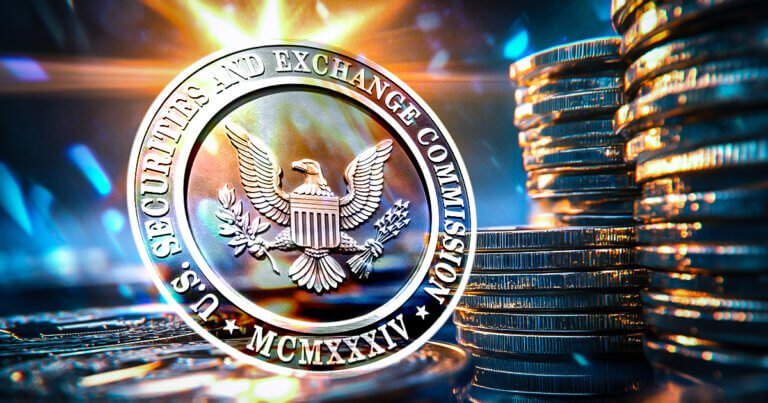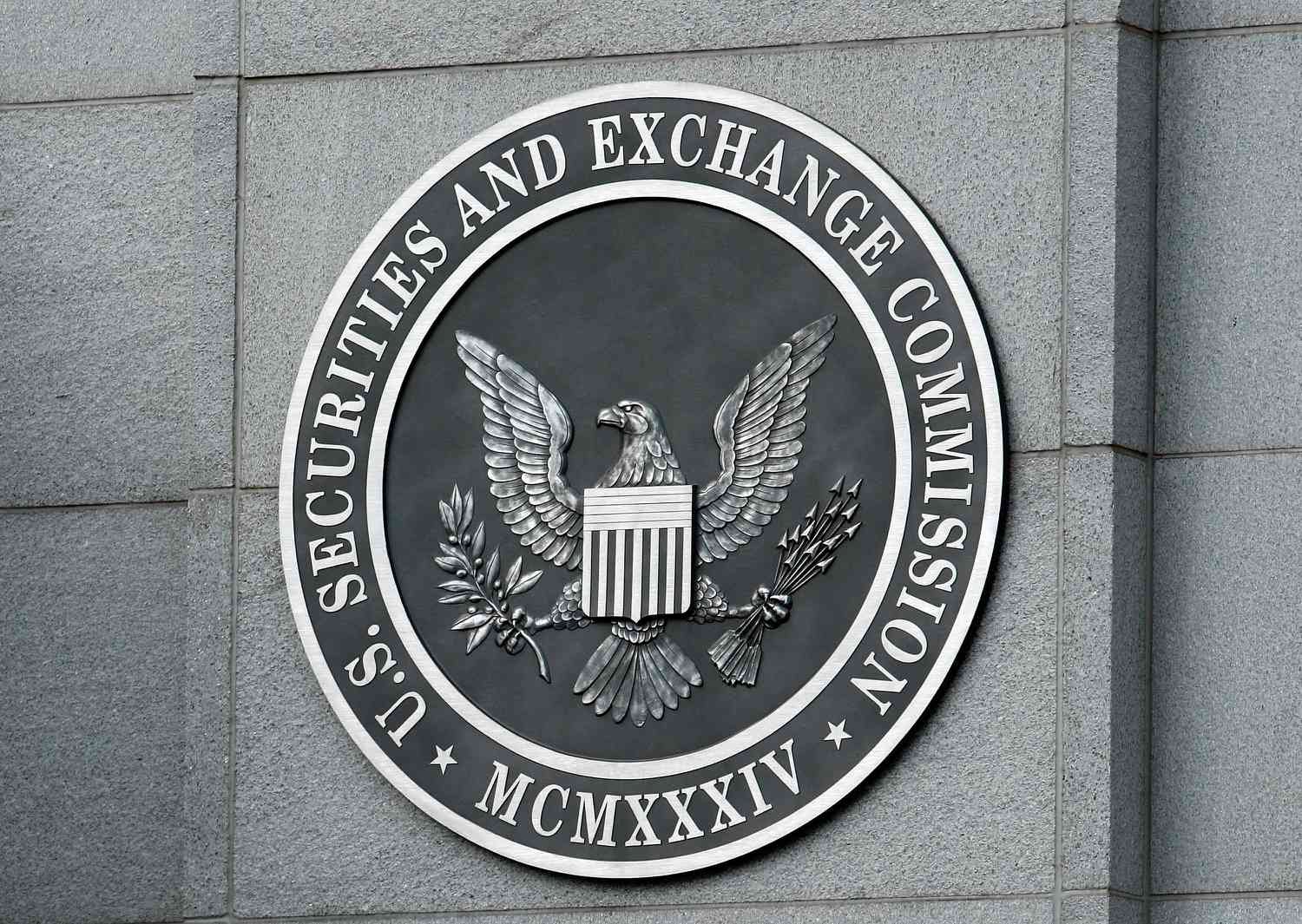

New Frontiers, Old Rules: SEC Staff Outlines Disclosure Expectations for Crypto Asset ETPs
On July 1, 2025, the SEC’s Division of Corporation Finance issued a comprehensive staff statement clarifying its views on disclosure obligations under the federal securities laws for issuers of crypto asset exchange-traded products (ETPs). While the products themselves represent novel financial structures—trust-based vehicles holding spot crypto or derivatives—the statement emphasizes continuity in legal obligations: crypto ETP issuers must adhere to well-established disclosure requirements under the Securities Act of 1933 and the Securities Exchange Act of 1934.

Tokenization Reality Check: Commissioner Peirce’s July 2025 Statement
For me and other experts who practice in this space, this was a bit of a "well duh" moment. But given the culminating momentum in the crypto space following the increasingly positive sentiment overall towards the digital assets industry, the Commission was right to make this clear. In a clear-eyed statement issued July 9, 2025, SEC Commissioner Hester M. Peirce addressed the increasing prevalence of tokenized securities, emphasizing that while the underlying technology may be novel, the applicable laws are not.

Crypto in Transition: A Regulatory Crossroads for Digital Assets, Tokenization, and ETPs
The digital asset ecosystem is entering a defining period—where legislative clarity, regulatory nuance, and litigation risk are converging. As crypto markets stabilize following years of enforcement-heavy scrutiny, U.S. regulators are offering more detailed guidance. New legislation and thoughtful statements from key regulators point toward a maturing legal environment—one that retains rigor while opening pathways for innovation. At the same time, market participants must navigate a shifting landscape marked by technological complexity, state-level litigation risks, and intensifying disclosure obligations.
This update provides a unified view of where the industry is now—from Congress and the SEC to private litigation—and what legal counsel should be preparing for next.

Regulatory Update: SEC Staff Guidance Eases Broker-Dealer Path Into Digital Asset Markets
On May 15, 2025, the U.S. Securities and Exchange Commission’s Division of Trading and Markets (“Staff”) published a set of Frequently Asked Questions (FAQs) offering long-awaited clarity for SEC-registered broker-dealers and transfer agents engaging in crypto asset-related activities.
Issued alongside FINRA and accompanied by the formal withdrawal of the 2019 Joint Staff Statement on Broker-Dealer Custody of Digital Asset Securities, this update is a meaningful step forward. It signals the Staff’s intent to move past defensive postures and toward practical, systems-level integration of crypto asset infrastructure into the legacy securities framework.
To be clear: the FAQs don’t alter statutory obligations or override the SEC’s 2020 Special Purpose Broker-Dealer (“SPBD”) Statement. But what they do provide is a viable, operational path for traditional broker-dealers to custody crypto asset securities—without siloed carveouts or regulatory acrobatics.
Let’s break down what matters, and why this shift should be on the radar of every compliance officer, digital asset GC, and prime services executive with an eye on the evolving intersection of finance and blockchain.

Tokens, Forwards, and the Illusion of Equity: What Republic's SpaceX Deal Tells Us About Modern Securities Innovation
Matt Levine’s latest Money Stuff column dissects a fascinating and increasingly common financial arrangement that blurs the line between traditional equity, tokenized instruments, and synthetic exposure: Republic’s tokenized forward tied to SpaceX stock.

SEC Reevaluates Controversial Market Surveillance Tool Amid Legal and Industry Pushback
In a move that signals regulatory recalibration, the Securities and Exchange Commission (SEC) has paused litigation surrounding its Consolidated Audit Trail (CAT) — a long-debated, market-wide surveillance system that has drawn growing criticism from investors, industry participants, and conservative watchdogs. The SEC’s pause suggests that the agency may be open to modifying or even scaling back one of the most ambitious trade monitoring initiatives in modern market history.

Judge Rejects SEC and Ripple’s Joint Bid to Reduce Fine and Vacate Injunction
In a striking rebuke to both a federal agency and a prominent digital asset firm, U.S. District Judge Analisa Torres has rejected a joint motion by the Securities and Exchange Commission (SEC) and Ripple Labs to finalize a reduced civil penalty and vacate a previously imposed injunction in their high-profile enforcement battle. The ruling underscores the limits of private settlement power in the face of final judicial determinations and reinforces the judiciary’s role in upholding statutory mandates — especially in cases involving violations of the federal securities laws.

Ripple and SEC Seek to Resolve Civil Penalty Dispute with $75M Release to Ripple
In a notable shift toward final resolution, Ripple Labs and the U.S. Securities and Exchange Commission (SEC) have jointly filed a motion in the U.S. District Court for the Southern District of New York seeking to modify the judgment in their long-standing enforcement matter and release funds held in escrow. Under the proposed stipulation, $125 million in civil penalties previously imposed on Ripple would be partially redistributed—$50 million paid to the SEC, with the remaining $75 million returned to Ripple.

DOJ Charges Amalgam Founder With Crypto Fraud: A Case Study in Deception
The Justice Department has unsealed criminal charges against Jeremy Jordan-Jones, alleged founder of the now-defunct crypto venture Amalgam, accusing him of orchestrating a $1 million investor fraud built on fabricated partnerships, fictitious technology, and the trappings of blockchain legitimacy.
The indictment is the latest in a growing string of federal enforcement actions targeting fraudulent schemes masquerading as legitimate digital asset businesses. The message from prosecutors is clear: the novelty of blockchain will not shield bad actors from traditional fraud charges.

The GENIUS Act: A Long Overdue Framework for Blockchain-Era Banking
The recent Senate vote to advance the GENIUS Act—a bipartisan bill to regulate stablecoins—is more than just another milestone in crypto policy. It represents a long-overdue recognition that fiat-backed digital dollars are not speculative assets; they are infrastructure.
At Anderson P.C., we strongly support the GENIUS Act and believe it lays the foundation for a safer, more credible, and ultimately more competitive U.S. digital economy.

Ten Legal Challenges Reshaping the Sports Industry in 2024–2025
Anderson P.C. enters this space with a unique combination of sector fluency and legal precision. We advise clients ranging from elite athletes and sports executives to institutional investors, leagues, and media partners. Our approach is rooted in a firm-wide commitment to clarity, discretion, and strategic foresight.

Announcing the Launch of Anderson P.C.'s Sports & Entertainment Practice
Anderson P.C. is pleased to announce the launch of its Sports & Entertainment Practice, marking a strategic expansion aligned with the rapidly evolving legal landscape across the global sports industry. Our practice draws upon extensive regulatory, litigation, and advisory experience, and is informed by a deep understanding of the industry from both legal and operational perspectives.

Token or Equity or Both? Cap Table Strategy in Web3
Founders face a unique challenge: managing both tokens and equity on the cap table. Tokens aren’t equity, but investors often treat them like they are—raising questions about rights, control, and upside. Without clear structure, that confusion can derail deals and trigger avoidable risks.

SEC Chair Paul Atkins Announces Sweeping Cuts and Contract Reviews: What This Means for Market Regulation and Enforcement
In his first major address to the agency, newly appointed SEC Chair Paul Atkins informed staff this week that the U.S. Securities and Exchange Commission has experienced a 15% reduction in workforce, with more changes to come. The remarks, delivered during a town hall at SEC headquarters in Washington, D.C., mark a sharp pivot in tone and direction for the Commission under the Trump administration’s broader government downsizing initiative, led in part by billionaire adviser Elon Musk’s Department of Government Efficiency (DOGE).

Super Micro Subpoenaed by DOJ and SEC Following Short Seller Allegations: What This Means for AI Market Investors and Compliance Officers
San Jose-based Super Micro Computer, a prominent supplier of high-performance AI server hardware, disclosed this week that it has received subpoenas from both the U.S. Department of Justice (DOJ) and the Securities and Exchange Commission (SEC). The subpoenas, served in late 2024, are part of an apparent response to allegations first raised by the now-defunct short seller Hindenburg Research in August of last year.

FOIA Docs Show NY AG Wanted ETH Declared a Security
In a striking revelation from documents obtained through Coinbase’s Freedom of Information Act (FOIA) efforts, the New York Attorney General’s Office asked the Securities and Exchange Commission (SEC) in 2023 to declare Ether (ETH) a security in support of its lawsuit against crypto exchange KuCoin. The request, made during the tenure of former SEC Chair Gary Gensler, was ultimately declined.

SEC Unmasks $91M Ponzi Scheme in Texas: Three DFW Residents Charged in Sweeping Fraud Case
The Securities and Exchange Commission (SEC) has filed sweeping civil charges against three Dallas-Fort Worth (DFW) residents for orchestrating an alleged $91 million Ponzi scheme that defrauded over 200 investors. The defendants—Kenneth Alexander II, Robert D. Welsh, and Caedrynn E. Conner—now face allegations of violating the antifraud and registration provisions of federal securities laws through a complex network of deceptive investment vehicles.

Civitas Resources Faces Securities Class Action After 18% Stock Drop: What Investors and Public Companies Should Know
Civitas Resources, Inc. (NYSE: CIVI), a prominent player in the U.S. oil and gas sector, now finds itself at the center of a securities class action lawsuit following a sharp 18% decline in its stock price. The complaint, filed in the U.S. District Court for the District of New Jersey (captioned Lin v. Civitas Resources, Inc., et al., No. 25-cv-03791), alleges violations of Sections 10(b) and 20(a) of the Securities Exchange Act of 1934, spotlighting misstatements concerning production capabilities and capital expenditures.

SafeMoon Trial Opens: Former CEO Claims Innocence, Points to Founder as Culprit
The trial of SafeMoon’s former CEO, Braden John Karony, commenced this week in the U.S. District Court for the Eastern District of New York (EDNY), adding another complex layer to the growing landscape of crypto enforcement actions. Facing charges of securities fraud conspiracy, wire fraud conspiracy, and money laundering conspiracy, Karony has publicly asserted his innocence—and in a rare move, attempted to deflect culpability toward SafeMoon’s founder, Kyle Nagy.
